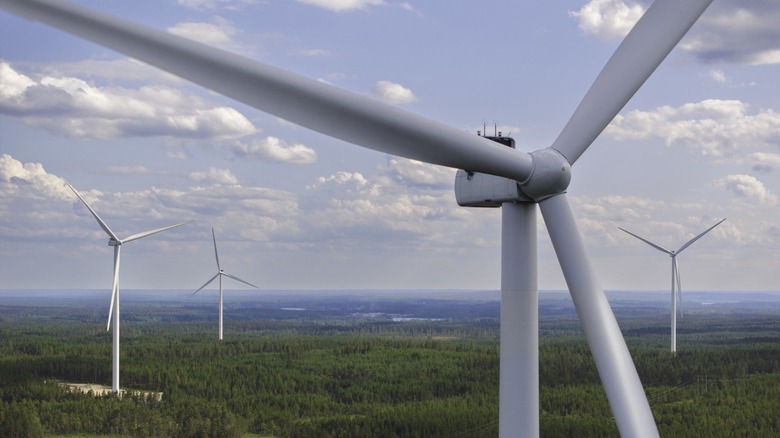
Exposure to high noise levels is a well-known source of adverse physical and mental health impacts in humans. Wind turbines often suffer extra criticism here, but a new study conducted by researchers at
Adam Mickiewicz University in Poland and published in Humanities and Social Sciences Communications suggests that wind turbine noise is not adversely affecting human health.
University researchers recruited 45 healthy adult volunteers for the study. Each volunteer was subjected to real-world levels of wind-turbine noise recordings in addition to road traffic noise and complete silence as control conditions. To test the effects of wind turbine noise, the study measured volunteers' stress and annoyance levels while exposed to each sound. The researchers delivered each noise to the subjects without revealing the source.
While some noises, such as those emitted by air conditioners and drones, can affect cognitive functions, the study's participants didn't experience any extra annoyance from wind turbine noise compared to road noise. That said, while wind turbine noise might be benign, wind farms could have a higher environmental impact than many people realize. It's also worth noting that the study's authors point out their results cannot be generalized across the population.
Read more: Battery Brands Ranked From Worst To Best
Other Reasons Wind Turbines Might Annoy Us

Unless you've ever been close to a wind turbine, you might have no idea how massive they are. The average hub height (the distance from the ground to the center of the blades) for land-based wind farm turbines rose to nearly 340 feet in 2023. These towers, in turn, support longer rotor blades with diameters of up to 438 feet. In total, a modern wind turbine could tower nearly 560 feet above the landscape.
The mere presence of these gigantic structures in the landscape has been blamed for causing elevated stress for nearby residents. In 2013, a study titled "Adverse health effects of industrial wind turbines" in the Can Fam Physician suggested that people who live or work near these "industrial wind turbines" could also experience symptoms including "annoyance, stress, sleep disturbance, headache, anxiety, depression, and cognitive dysfunction."
Although participants of the Polish study didn't suffer from short-term exposure to wind turbine noise, previous studies, such as "Wind turbines make waves: why some residents near wind turbines become ill" by Havas, M., & Colling, D. (2011), published in the Bulletin of Science, Technology & Society, suggest that individuals may react differently to sound and electromagnetic waves from wind turbines. While the jury's still out, wind turbines are likely a step in the right direction, just so long as we can move past the myths surrounding renewable energy.
Want the latest in tech and auto trends? Subscribe to our free newsletter for the latest headlines, expert guides, and how-to tips, one email at a time.
Read the original article on SlashGear.










